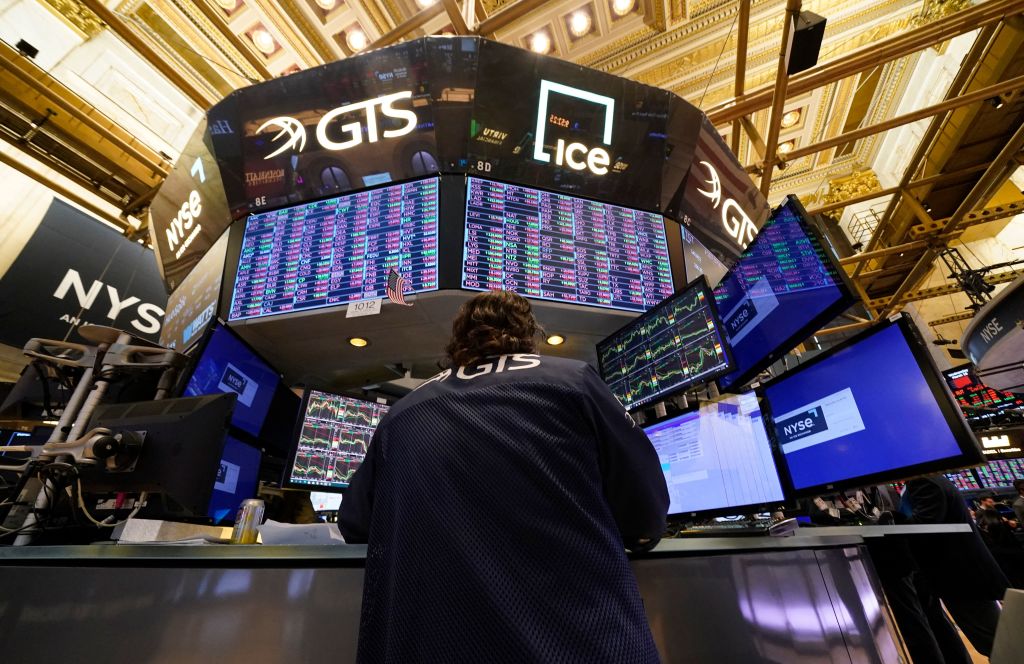Who's Better at Stock Picking: Human Traders or Computers?
A new study on stock trading at the New York Stock Exchange evaluates human vs. robot investing outcomes.


Profit and prosper with the best of Kiplinger's advice on investing, taxes, retirement, personal finance and much more. Delivered daily. Enter your email in the box and click Sign Me Up.
You are now subscribed
Your newsletter sign-up was successful
Want to add more newsletters?

Delivered daily
Kiplinger Today
Profit and prosper with the best of Kiplinger's advice on investing, taxes, retirement, personal finance and much more delivered daily. Smart money moves start here.

Sent five days a week
Kiplinger A Step Ahead
Get practical help to make better financial decisions in your everyday life, from spending to savings on top deals.

Delivered daily
Kiplinger Closing Bell
Get today's biggest financial and investing headlines delivered to your inbox every day the U.S. stock market is open.

Sent twice a week
Kiplinger Adviser Intel
Financial pros across the country share best practices and fresh tactics to preserve and grow your wealth.

Delivered weekly
Kiplinger Tax Tips
Trim your federal and state tax bills with practical tax-planning and tax-cutting strategies.

Sent twice a week
Kiplinger Retirement Tips
Your twice-a-week guide to planning and enjoying a financially secure and richly rewarding retirement

Sent bimonthly.
Kiplinger Adviser Angle
Insights for advisers, wealth managers and other financial professionals.

Sent twice a week
Kiplinger Investing Weekly
Your twice-a-week roundup of promising stocks, funds, companies and industries you should consider, ones you should avoid, and why.

Sent weekly for six weeks
Kiplinger Invest for Retirement
Your step-by-step six-part series on how to invest for retirement, from devising a successful strategy to exactly which investments to choose.
High-frequency stock trading has dominated Wall Street for years. But do those sophisticated trading algorithms really deliver better returns than human stock traders?
Researchers from the University of Utah and State University of New York at Buffalo studied head-to-head data from the New York Stock Exchange (NYSE) during the COVID-19 pandemic, producing a new research paper with surprising findings and implications for investors.
Stock exchanges: Human vs. algorithm
As much of the trading landscape has embraced computer-driven stock picking, some exchanges like the NYSE have retained the longstanding practice of using human traders in the trading "pit." During market hours, traders stride about the trading floor executing trades for clients face-to-face with market makers.
From just $107.88 $24.99 for Kiplinger Personal Finance
Become a smarter, better informed investor. Subscribe from just $107.88 $24.99, plus get up to 4 Special Issues

Sign up for Kiplinger’s Free Newsletters
Profit and prosper with the best of expert advice on investing, taxes, retirement, personal finance and more - straight to your e-mail.
Profit and prosper with the best of expert advice - straight to your e-mail.
By comparison, high-frequency algorithmic trading happens entirely inside of sophisticated computer networks. Financial firms spend billions of dollars on ever more powerful algorithms and even invest in high-tech fiber connections to achieve millisecond advantages over trading rivals.
High frequency traders engage in front-running, or knowing what others are getting ready to buy and buying it before they can execute their trade. High-frequency traders do this millions of times each day with thousands of stocks, usually making a tiny profit on each trade that quickly adds up.
Study methods and findings
On March 23, 2020, the NYSE suspended floor trading in favor of all electronic trading, because of multiple COVID-19 diagnoses among professionals operating in the pit. It was the first time the physical trading floor of the NYSE had shut independently while electronic trading continued.
NYSE partially reopened the trading floor to human trading at two subsequent points. These windows of frozen floor activity allowed researchers a rare opportunity to compare human vs. algorithmic trading performance.
The researchers found that human floor traders are, in fact, important parts of a healthy stock market ecosystem. When humans were banned from the floor, NYSE trading registered greater spreads between stocks bids and asking prices. The researchers also detected a higher frequency of pricing errors (between 2-6%) for affected stocks, compared to control stocks during a period of regular trading.
The study findings suggest that face-to-face interaction between traders and market makers improves market quality by enabling the sharing of valuable context that algorithms simply can't access.
The bottom line
Many companies are embracing artificial intelligence as a way to increase efficiency, boost returns and often eliminate more costly human positions. The study demonstrates the enduring value of human experience in evaluating complex business challenges, like pricing stocks efficiently. Algorithms and AI are only as good as the people behind them choosing which training data to apply and which situations merit fully computerized decision-making.
So consumers and financial professionals alike should take some time to find the right balance of human skills and technology, rather than simply rushing to turn over their retirement planning or investing to a computer.
Related Content
Profit and prosper with the best of Kiplinger's advice on investing, taxes, retirement, personal finance and much more. Delivered daily. Enter your email in the box and click Sign Me Up.

Ben Demers manages digital content and engagement at Kiplinger, informing readers through a range of personal finance articles, e-newsletters, social media, syndicated content, and videos. He is passionate about helping people lead their best lives through sound financial behavior, particularly saving money at home and avoiding scams and identity theft. Ben graduated with an M.P.S. from Georgetown University and a B.A. from Vassar College. He joined Kiplinger in May 2017.
-
 Ask the Tax Editor: Federal Income Tax Deductions
Ask the Tax Editor: Federal Income Tax DeductionsAsk the Editor In this week's Ask the Editor Q&A, Joy Taylor answers questions on federal income tax deductions
-
 States With No-Fault Car Insurance Laws (and How No-Fault Car Insurance Works)
States With No-Fault Car Insurance Laws (and How No-Fault Car Insurance Works)A breakdown of the confusing rules around no-fault car insurance in every state where it exists.
-
 7 Frugal Habits to Keep Even When You're Rich
7 Frugal Habits to Keep Even When You're RichSome frugal habits are worth it, no matter what tax bracket you're in.